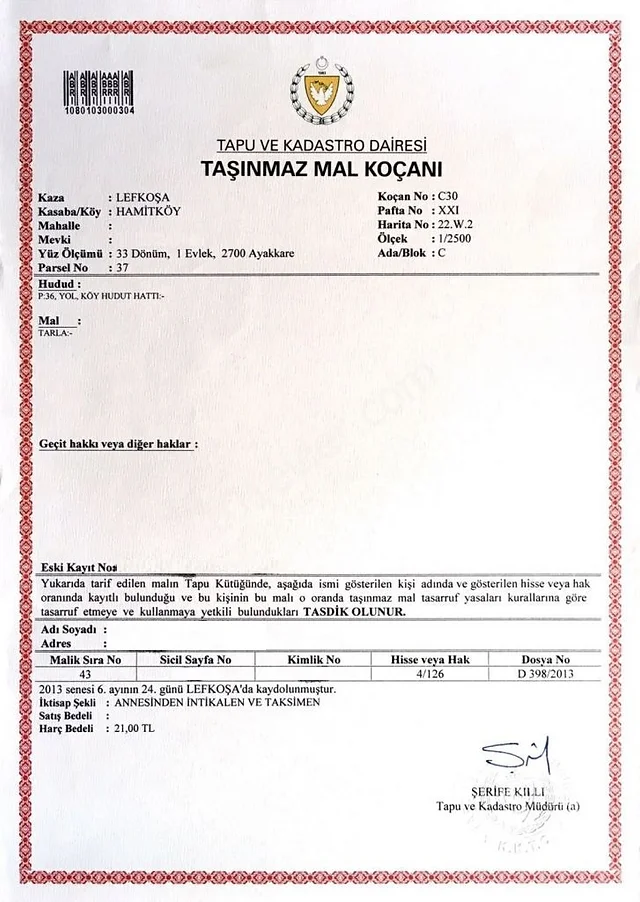Immovable Property Commission in Northern Cyprus
North Cyprus Property Title Deeds! which title deed is safe? is it safe to buy?
What is Share title deeds in North Cyprus
Title deeds are legal documents that establish ownership of a property or land. When buying a property, it is important to ensure that the title deeds are safe and legally sound. However, there are certain types of title deeds that can be risky, such as share title deeds.
Share title deeds, also known as communal title deeds or share block schemes, are a form of property ownership where a group of individuals jointly own a property or land. Each owner holds a share in the property, and the ownership is typically managed by a company or body corporate.
While share title deeds can be a cost-effective way to own a property, they can also be risky. This is because the ownership is shared, and disputes can arise among the owners. Additionally, the company or body corporate managing the ownership can make decisions that may not be in the best interest of the individual owners.






Join The Discussion